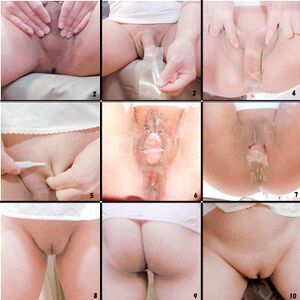- Portals
- The Current Year
- ED in the News
- Admins
- Help ED Rebuild
- Archive
- ED Bookmarklet
- Donate Bitcoin
Contact an admin on Discord or EDF if you want an account. Also fuck bots.
Kewlies: Difference between revisions
Jump to navigation
Jump to search
imported>Silvak87878 No edit summary |
imported>Silvak87878 No edit summary |
||
(No difference)
| |||
Revision as of 05:23, 27 February 2012


Kewlies or Cool is a word that is used in order to be sarcastic or describe insecure children. It used to be used as a reference to temperature, but only nerds use it for that now. Now if you ask somebody what the word cool means, they will tell you it refers to something that is cool. However, there's a good chance that they're just being sarcastic because who the fuck uses the word "cool" anyway? I mean, really?
What is coolness?
Scientists have been pondering this for at least 100 years. This is because scientists want to be cool, so they can get pussy. Unfortunately, as nerds, they will never be cool.
These guys are pretty kewlies.
Previous Video | Next Video
Things that are cool

- Swearing at furries
- Guns for fursecution
- Fursecution
- Easy wimmins
- Dividing by zero. OH SHI-
- Smoking
- Whipping your dick out at old people
- Spontaneous raep
- Stories
- Lulz
Things that are not cool

- AIDS (unless you have it.)
- Your mom
- Star Trek
- Elton John
- Paris Hilton
- You
- Justin Bieber
- You
- Wiggers
- Belgians
- You
How to measure coolness
Gallery
Kewlies gallery About missing Pics
-
He is so cool he deserves to be the first picture.
-
Coolness is measured in units called MicroFonzies (µω).
-
This also goes for you.
-
Cool is defined as being young, blonde, and laughing with some robots. lolwut.
[Expand Gallery]
-
Kewlies enjoy Jager bombs and group buttsecks.
-
HONK HONK! TIME FOR SCHOOL, KIDZ (spelled with a 'Z' for extra coolpoints).
-
The Crab Nebula is cooler than YOU will ever be.
How to be Cool
- Step 1...Do it for the lulz.
- Step 2...Repeat step 2.
- Step 3...????
- Step 4...Profit!
See also
| Kewlies is part of a series on Language & Communication | |
|---|---|
Languages and Dialects • Grammar, Punctuation, Spelling, Style, and Usage • Rhetorical Strategies • Poetry •
The Politics of Language and Communication • Media • Visual Rhetoric
Click topics to expand |

|






